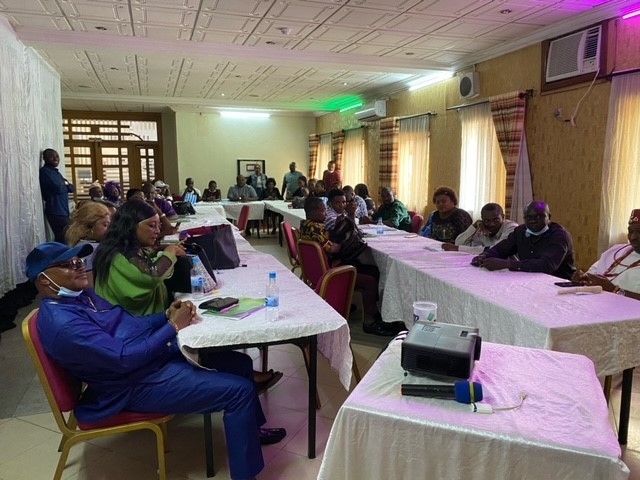CSO, CBOs, DELTA STATE TO ADVOCATE FOR EFFECTIVE LGA SERVICE DELIVERY
The local government is the third tier of government closest to the people. Sadly, the level of apathy shown by citizens to the affairs of this tier of government is a pointer to the fact that activities of the local government, in most cases, do not reflect the people’s interest.
As part of the need to strengthen voices for local government service delivery and autonomy, Alone (Alone) with the support of UNDEF organized a two day capacity building workshop for Civil Society Organizations and Community Groups on NEEDS Assessment for Community Development & Service Delivery in Local Government Areas in Nigeria. The meeting was held at Orchid Hotel in Asaba, the capital of Delta State.
Addressing the participants comprising of CSOs, Community members and People Living With Disabilities, Prince Edegbuo the Senior Programs Officer of Alone expantiated on the importance of NEEDs Assessment in LGAs. According to him, the Local Government is closest to the people, yet there are records of misappropriation, and lack of proper management of funds by the elected officials at the councils, resulting in state of underdevelopment. Appropriations to the local government over the years have brought little or no development and citizens hardly ever see their state budget to determine what is allocated to the local government to enhance development. He charged CSOs, community members and all active citizens to demand for effective service delivery form their Local as well as their State Governments as this is their right as tax-payers.
The resource persons who spoke at the event gave practical presentation on how the citizens could participate in the campaign for good service delivery in the local governments to foster visible developments no matter how small. These include
- Advocacy techniques and tools for effective advocacy
- Awareness and knowledge of the budget and budgeting process and the essence of participatory budgeting which is to encourage citizens involvement and their groups in determining and monitoring of the implementation of public expenditure.
- The role of citizens in the budget process and how citizens can ensure and communicate their needs to the government so their interest can be reflected
- Tracking of budgets expenditure to ensures funds released are used for the purpose it was made available.
- Verification of budget, creating a citizen’s budget forum, asking for a call circular, organizing themselves as a group to make these demands, writing to the chairman and even organizing public hearing.
At the end of his presentation, participants during the question and answer session, raised their concerns which were; challenges faced trying to monitor the budget, what should they look at for, how do they follow up when budgets are not implemented and completed, the secrecy of the budget and if there are laws criminalizing non-completion of a budget?
NEEDs Assessment
While speaking on the theme of the program, Kentebe Ebiador focused on “Conducting Community Needs Assessment.” He explained the nitty-gritty of what community need assessment entails, analyzed four types of community needs and how to conduct assessment, categorize and prioritize community needs. He also touched on the the essence of Community Needs Assessment, the end result of Community Need Assessment, basic steps of a Community Needs Assessment and how these assessment can be achieved with the involvement of CSOs and Community members.

The practical aspect of the Workshop was the grouping of participants into groups, named after communities with the instruction to carry out a mock NEEDS Assessment in their various communities, come up with a budget and give a breakdown of how the budget should be spent to meet their needs in order of priority. The practical session also involved how to engage local government authorities of the findings of the assessment.
Gender Inclusion
In a concluding lecture Barrister Bridget Anyanfulu spoke on “Gender Mainstreaming and Social Inclusion.” The main objective of the lecture was to enable participants understand the concept of social inclusion, social exclusion, discrimination and the drivers of social inclusion. she encouraged gender sensitivity even amongst those living with disabilities as their opinions matter in decision making and should not be treated less.
